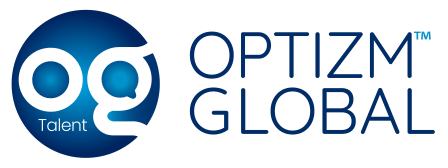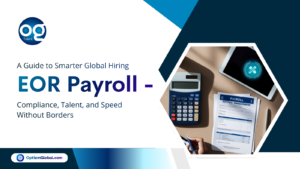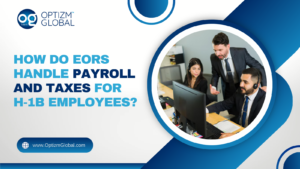As companies increase in size or expand geographically across state and national borders, payroll becomes more complicated to administer. Most companies—particularly startups and small businesses—use Professional Employer Organizations (PEOs) to streamline their HR and payroll activities.
But not all PEOs are created equal. Choosing the right professional employer organization payroll provider can make the difference between operational ease and compliance nightmares. This blog examines the essential features to consider when selecting a PEO to manage your payroll efficiently.
Why Businesses Choose PEO Payroll Services
A Professional Employer Organization (PEO) is a co-employer that provides HR functions like payroll, employee benefits, tax filing, and compliance on behalf of a business. Through its use of a PEO, businesses can bring in enterprise-level HR systems, expertise, and employee benefits while having more time to concentrate on its core operations.
The National Association of Professional Employer Organizations (NAPEO) shows that companies utilizing PEOs increase 7–9% and have a 50% chance of failure.
But it’s all about finding the right PEO—one with the tools, guidance, and know-how designed for your business.
Key Features to Search for in a PEO Payroll Service Provider
1. Automated, Error-Free Payroll Processing
Any good PEO must be able to administer accurate, timely payroll. Its value proposition should include:
Payroll automation for wages, tax withholdings, bonuses, overtime, etc.
Customized payroll schedules – weekly, biweekly, and monthly
Direct deposit and payroll cards as options for easy distribution to employees
Audit trails for transparency about adjustments to the payroll
Payroll mistakes can be contentious to employees or land in more problematic litigation routes, so automatic calculations and built-in error checking are a must.
2. Tax Compliance and Filings
No small task is navigating federal regulations and multi-state tax laws. A good PEO will:
– File local, state, and federal payroll taxes for you.
– Keep current with evolving tax legislation.
– Deliver year-end W-2s and 1099s.
– Prevent you from paying expensive IRS penalties because you were misclassified or filed incorrectly.
The IRS fines companies billions of dollars a year for wrong payroll tax submissions. Your PEO should be a shield, not an added cost.
3. Integrated HR and Payroll Systems
An efficient system that integrates payroll with time tracking, benefits, and HR information saves time and eliminates duplication. Make sure your provider provides:
– Single dashboards for payroll, attendance, and HR records.
– Mobile and desktop access for employers and employees.
– Self-service portals where employees can see pay stubs, apply for time off, and edit details.
Integrated systems minimize administrative work and offer real-time insights.
4. Custom Reporting and Analytics
Having useful payroll reports can make budgeting, forecasting, and compliance much simpler. Go ahead and try this:
Select custom payroll reports by department, location, or job title.
Find an inbuilt analytical function so that you can monitor trends and costs on compensation.
On-demand exports that integrate with your accounting or ERP packages can help a lot.
Effective reporting allows you to make informed decisions based on real facts.
5. Scalability and Industry Fit
Choose a PEO that can grow with you, whether you’re a 10-person startup or growing to 200+ employees. Your payroll should adapt by:
– Company size and growth path
– Applicable industry regulation (e.g., healthcare, construction, or tech).
– Remote and international workforce requirements, if any.
Request how their platform evolves when headcount, geography, or industry compliance changes.
6. Support by Experts and Onboarding
Payroll is not a place you should be debugging with robots or slow customer support. A world-class PEO will provide:
– Single-point-of-contact account managers for dependable support.
– Live onboarding support to import existing data.
– Rapid response times for high-priority payroll or tax issues.
You’re not purchasing a system—you’re acquiring a long-term partner. Human support is a game-changer.
7. Data Protection and Compliance
Because payroll information is highly confidential, security should never be optional. Make sure your PEO has:
– HIPAA and SOC 2 compliance to ensure secure data handling
– Two-factor authentication and encryption protocols
– Regular audits and data back policies
A reputable PEO will have a cybersecurity plan investing in security for your business and your employees.
Bonus: Consider the Reputation of the PEO
Before you commit to the PEO, take some time to:
- Request client references in your industry
- Read online reviews and ratings
- Note the provider’s NAPEO membership
When it comes to risk management and letting the PEO fulfill your payroll and compliance responsibilities, it does count..
Final Thoughts
Payroll is perhaps the most critical but risky operation within any company. An able professional employer organization payroll partner doesn’t simply crunch numbers—they keep you compliant, mitigate risk, and keep employees confident.
Take time to compare capabilities, talk to providers, and match the PEO’s strengths to your business objectives. A PEO, when selected well, does more than process payroll—it’s a strategic partner in your business growth.






